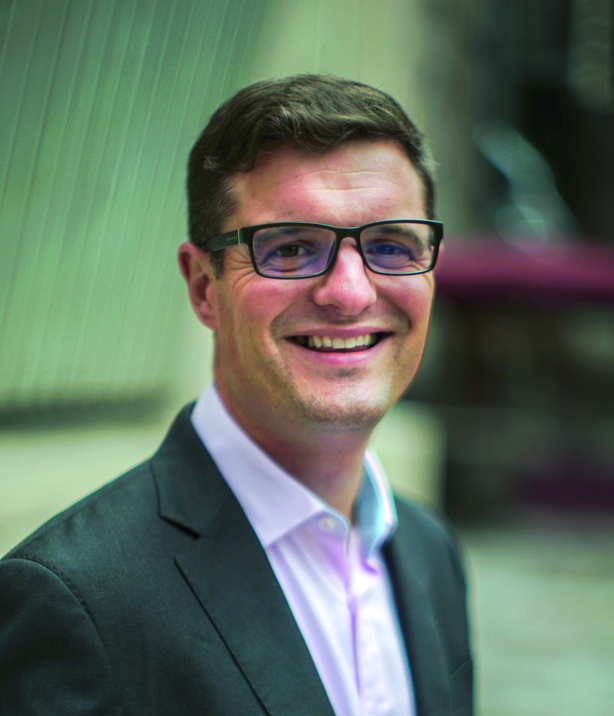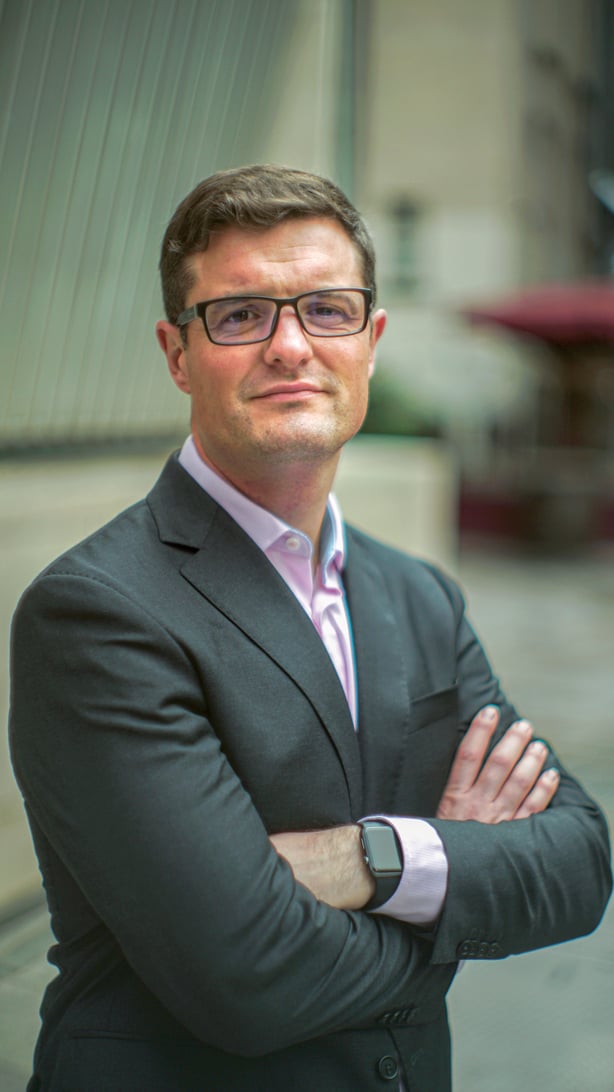Finance expert Eoin McGee is back with a new series of his money makeover show, How To Be Good With Money. He spoke to Darragh McManus about making a plan to keep the cash flowing
One of the best things about Eoin McGee, and the show he hosts, How To Be Good With Money is that he's an expert with all things financial, but doesn’t act like one.
All "makeover your life" shows promise to fix problems and help people get sorted. The beauty of Eoin’s show is that he does it without patronising or hectoring the people who volunteer to air their money issues on national TV.
"I don’t intentionally try to not come across as the sort of lecturing expert," he says. "It’s just the way I am. That’s how I deal with every client, every time. It’s all about trying to get the best for them, and the right way of doing that is to work together, and not pontificate."
He loves how "engaged" people are on the show, adding, "They’re at a time in their life when they’re ready to make a change, and maybe haven’t thought it through as much as they should have. But they’re very open, and that makes it easy to work with someone. You get the information across to them, they apply it and get the benefit."

Owner of Prosperous, a financial planning service for "generally high-net-worth individuals," Eoin isn’t an extremist: he reckons there’s nothing wrong with treating yourself or spending money on things you like. The key is to take a sensible approach and plan ahead.
Take Christmas, a notoriously tough time for personal finances. "It is hard for people around this time of year," he says, "but guess what – it’s not a surprise. This happens every year. Once you know how much something costs, and that it’s going to happen every year, you can plan accordingly."
Planning, unfortunately, isn’t necessarily a major part of human nature. Neither is accepting the reality of our situation. Eoin says, "Some people just expect that, once they get paid before Christmas, they’ll be able to come up with the extra costs. And I tell them to do this: from January onwards, put away a certain amount of money, say €100 a month. Then at Christmas, you have €1,200 extra. And you can do this forever, every year, so it’s always covered. If you find that €1,200 was too much or too little, then adjust it for the following year."
We can do the same for anything: back-to-school costs, holidays, property tax. He goes on, "Don’t expect that next July an extra €3,000 will magically appear in your account. If you can’t afford to put aside a few hundred a month for 12 months to pay for it, you can’t afford to go on holiday. That’s when people get into trouble with credit cards and loans, and the gas thing is, people will borrow and pay it back, with interest, for a year, instead of saving it in the first place. I’m not saying, don’t do these things, but stop being surprised."

The time to take action is now. Don’t put it off to next month or next year, Eoin says. Instead, "remember the pain of having to find that money, or pay back a loan, or being under pressure financially. If you start now, putting something aside, you can avoid all that."
He admits that he "wasn’t always great with money from a young age" and still has "my little pleasures, things I spend money on. I’m not a killjoy or tight, and I like to enjoy life, but I am controlled about money. So each time you get paid, sort everything out that you have to, get it all done and then whatever’s leftover, spend it on whatever you want, guilt-free. You’re working hard and have money, but make sure everything’s covered first.
"You do have to invest sometimes, and make big financial decisions, so long as they’re made consciously, great – go for it. Often we buy things out of habit: it might be seven coffees in the day and we’re only actually enjoying the first two. Or we buy because a marketing department persuades us to, not because we really want it. So you have to be careful about that type of thing."
Eoin says the reaction to the first series of How To Be Good With Money was "phenomenal". He gets stopped on the street and asked for advice; the show, he reckons, "got a conversation started, which is really important. People have an expectation of where they’re going to, and how long it’ll take. And when you step them through the basic maths of it, there’s a penny-drop moment.
"To be fair, you can’t expect them to know these things. It’s just about explaining it, helping them understand where their thought-process is going wrong. You give them the information to make the right decisions, but nobody has to know everything about finance."
Watch How To Be Good With Money on Thursday 9th January at 8.30pm on RTÉ One.


